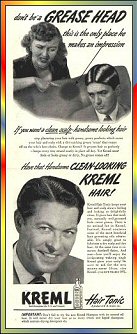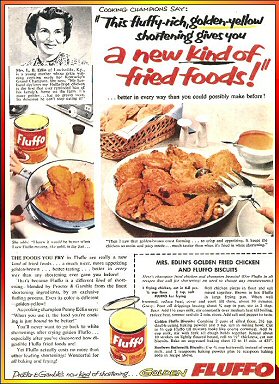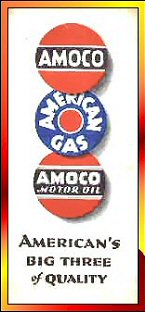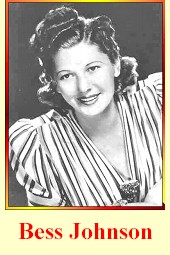Everyone
Takes Part
With Radio Commercials
“Get
some Golden Fluffo….. real soon.”
-- Red Barber
Lincoln, Me. (DG)—
When network radio began, the networks didn’t have the
luxury of having people who specialized in only specific speaking jobs.
In other words, if a person spoke in front of a microphone, he/she was
inclined to present a variety of things from news, to hosting a program, to the
subject of this article--- doing radio commercials (when direct selling on the
air was allowed). This article will
focus on some famous people who were better known for other roles on the radio
than presenting radio commercials.
 Gabriel Heatter was one of the most popular news
commentators of radio’s golden age. On his newscasts, Heatter wasn’t bashful in changing the
subject from a major news event to selling Kreml Hair Tonic. Gabriel Heatter was one of the most popular news
commentators of radio’s golden age. On his newscasts, Heatter wasn’t bashful in changing the
subject from a major news event to selling Kreml Hair Tonic. Instead of an overwhelming direct sell, Heatter casually talked about Kreml
and the good things it did for men’s hair.
When he was about to finish, Heatter asked the housewives to make sure
there was a bottle of Kreml where hubby could easily reach it---
and thanked them for their trouble.
Instead of an overwhelming direct sell, Heatter casually talked about Kreml
and the good things it did for men’s hair.
When he was about to finish, Heatter asked the housewives to make sure
there was a bottle of Kreml where hubby could easily reach it---
and thanked them for their trouble.
Heatter didn’t just sell products on his newscast.
He was also the commercial spokesman for Peter Paul candy
bars. It was here when Heatter used
a different advertising tactic. Instead
of the casual, easy going manner I mentioned earlier, Heatter put the power of
resistance to an extreme test.
He made Mounds and Almond Joy sound so
irresistible, the radio listeners were easily persuaded to go to their favorite
store and buy a Mounds and/or Almond Joy candy bar at
that moment.
Sportscaster Red Barber made a name for himself as the
legendary voice of the Brooklyn Dodgers and later the New York Yankees.
When he wasn’t doing play-by-play, Barber was selling Old Gold
Cigarettes on different programs for CBS during the 1940’s.
Using his country boy technique that made him famous to baseball fans,
Barber informed the listeners of the pleasant taste and cool smoking Old
Gold provided. He also
talked about “Apple Honey,” Old Gold’s natural ingredient to
preserve the freshness and moisture of the tobacco leaves before they were manufactured.
He also
talked about “Apple Honey,” Old Gold’s natural ingredient to
preserve the freshness and moisture of the tobacco leaves before they were manufactured.
As an announcer, Barber was remembered best as the
commercial spokesman for Old Gold Cigarettes, but he
was also the commercial spokesman for an unlikely product--- Golden Fluffo Shortening.
 If
you are not familiar with Fluffo, it was the modern shortening of
the 1950’s created by Procter & Gamble.
Its color was golden yellow instead of white that other shortening brands
were known for. To someone who saw Fluffo
for the first time, his/her first thought was it looked
rancid--- but strangely, with no overwhelming bad smell to go with
it. Fluffo was golden
yellow by design due to the carotene content it had.
Instead of frying food to an uneventful golden yellow, using Fluffo
enhanced that golden yellow color. For
baking, Fluffo helped to make lighter cakes and a flaky, lighter
tasting, and golden pie crust than the competition.
Although it looked like butter or margarine, Fluffo
wasn’t a table spread--- unless someone in the listening audience ate
shortening on their bread (remember, there is a song called Shortnin’ Bread). If
you are not familiar with Fluffo, it was the modern shortening of
the 1950’s created by Procter & Gamble.
Its color was golden yellow instead of white that other shortening brands
were known for. To someone who saw Fluffo
for the first time, his/her first thought was it looked
rancid--- but strangely, with no overwhelming bad smell to go with
it. Fluffo was golden
yellow by design due to the carotene content it had.
Instead of frying food to an uneventful golden yellow, using Fluffo
enhanced that golden yellow color. For
baking, Fluffo helped to make lighter cakes and a flaky, lighter
tasting, and golden pie crust than the competition.
Although it looked like butter or margarine, Fluffo
wasn’t a table spread--- unless someone in the listening audience ate
shortening on their bread (remember, there is a song called Shortnin’ Bread).
Getting back to the commercial, its format had Barber
interviewing housewives who won blue ribbons for their cooking and baking
creations. Of course, the
housewives used Fluffo. Like he did selling Old Gold, Barber
used his familiar country boy approach in his commercial presentation for Fluffo.

Before he became the voice of the New York Yankees and
goodwill ambassador for Major League Baseball, Mel Allen started his radio
career as an announcer. During the
late 1930’s and early 1940’s, Allen was selling Ivory Soap and
Crisco on different daytime serials the 2 products sponsored.
On a particular broadcast*, Allen also displayed his singing ability
in an Ivory Soap musical commercial with Ralph Edwards--- HOW
ABOUT THAT! (*-I think the commercial was presented on TRUTH OR
CONSEQUENCES, but it’s inconclusive).
(*-I think the commercial was presented on TRUTH OR
CONSEQUENCES, but it’s inconclusive).
When he wasn’t doing NBC Radio’s play-by-play of
the weekly college football game, Fort Pearson worked during the week as a radio
announcer. On a historical note,
Pearson was (I believe) the first of a long list of announcers for THE
GUIDING LIGHT. He was heard
selling PandG Naphtha Soap, the program’s first sponsor.
In later years, Pearson sold Kix on BEAT THE BAND
and Alka-Seltzer on QUEEN FOR A DAY.
Pearson had a convincing style of speaking voice that when he said PandG
Naphtha Soap washed clothes “Really White,” there was no
doubt whatsoever.
 Edwin
C. Hill was another distinguished radio journalist.
His talents on the air expanded to program M.C.--- and commercial
spokesman. During a 1939 newscast,
Hill easily changed from the somber news of that moment to an informative and
upbeat commercial for Amoco’s Orange American Gas. Edwin
C. Hill was another distinguished radio journalist.
His talents on the air expanded to program M.C.--- and commercial
spokesman. During a 1939 newscast,
Hill easily changed from the somber news of that moment to an informative and
upbeat commercial for Amoco’s Orange American Gas.
Although Amoco Gas was better known of Amoco’s
2 gasoline grades, Hill informed the listeners that Orange American Gas
was also a quality gasoline to use. For
those people who preferred regular gasoline, Hill assured them that Orange
American Gas was a “pure, sweet product” that was 100%
petroleum--- and 0% impurities and gunk that could hamper an engine’s
performance. At the end of the commercial, Hill asked the listeners to
stop at the Orange American Pump and give Orange American
Gasoline a tryout. It may
the first of many visits to the listeners’ Amoco stations.
Presenting commercials on the air wasn’t reserved for
famous journalists, announcers, and sportscasters--- or even men for that
matter! In addition to the various
character roles she played in the 1930’s, actress Bess Johnson was also one of
the few female announcers of network radio.
On the WAYNE KING’S ORCHESTRA program, Ms. Johnson
presented the commercials for the program’s sponsor, Lady Esther
Cosmetics in the role of Lady Esther. According to an article in the May 28,1938 issue of Radio
Guide magazine, Ms. Johnson’s portrayal of Lady Esther stirred up
some controversy, because some people believed that all radio
commercials should be done by men. To
focus into this controversy, Radio Guide featured the article, “Should
Radio Use Women Announcers?” To
answer the question the best way as possible, the article took an equal view of
both sides with 12 people (6 from each side) who either worked on radio or were
radio listeners. In an interesting
turn of events, of the 6 people who favored female announcers, 4 were men--- and
of the 6 who didn’t favor them, 3 were women.
From a personal viewpoint, Ms. Johnson had an outstanding speaking voice,
and she could present radio commercials as good as any announcer, male or
female. Besides, can you picture
Lady Esther on the air with a man’s voice??!!
 Regardless what the people thought of her as Lady Esther, it didn’t discourage
Ms. Johnson from presenting radio commercials.
When the Columbia serial PALMOLIVE’S HILLTOP
HOUSE made its debut, Ms. Johnson played the lead role (who
happened to be named Bess Johnson), the manager of the Hilltop House Orphanage. Frank Gallop was the program’s announcer, but it was Ms.
Johnson who presented the commercials for the sponsor, Palmolive Soap. Regardless what the people thought of her as Lady Esther, it didn’t discourage
Ms. Johnson from presenting radio commercials.
When the Columbia serial PALMOLIVE’S HILLTOP
HOUSE made its debut, Ms. Johnson played the lead role (who
happened to be named Bess Johnson), the manager of the Hilltop House Orphanage. Frank Gallop was the program’s announcer, but it was Ms.
Johnson who presented the commercials for the sponsor, Palmolive Soap. Ms. Johnson’s announcing duties didn’t hamper the popularity of PALMOLIVE’S
HILLTOP HOUSE, as it was among the most popular daytime serials of the
late 1930’s
Ms. Johnson’s announcing duties didn’t hamper the popularity of PALMOLIVE’S
HILLTOP HOUSE, as it was among the most popular daytime serials of the
late 1930’s
This is only a short list of some big names in radio doing
their part in selling the product to the radio listeners.
It also demonstrated the “team effort” of the people to make
network radio successful--- and considering the golden age lasted as long as it
did, they succeeded.
|